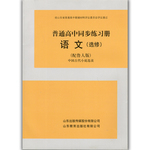题目内容
【题目】When something goes wrong, it can be very satisfying to say, “Well, it’s so-and-so’s fault.” or “I know I’m late, but it’s not my fault; the car broke down(抛锚).” It is probably not your fault, but once you form the habit of blaming somebody or something else for a bad situation, you are a loser. You have no power and could do nothing that helps change the situation. However, you can have great power over what happens to you if you stop focusing on whom to blame and start focusing on how to remedy the situation. This is the winner’s key to success.
Winners are great at overcoming problems. For example, if you were late because your car broke down, maybe you need to have your car examined more regularly. Or, you might start to carry along with you the useful phone numbers, so you could call for help when in need. For another example, if your colleague causes you problems on the job for lack of responsibility or ability, find ways of dealing with his irresponsibility(不负责任) or inability rather than simply blame the person. Ask to work with a different person, or don’t rely on this person. You should accept that the person is not reliable and find creative ways to work successfully regardless of(不管) how your colleague(同事)fails to do his job well.
This is what being a winner is all about—creatively using your skills and talents so that you are successful no matter what happens. Winners don’t have fewer problems in their lives; they have just as many difficult situations to face as anybody else. They are just better at seeing those problems as challenges and opportunities to develop their own talents. So, stop focusing on “whose fault it is.” Once you are confident about your power over bad situations, problems are just stepping stop on for success.
【1】According to the passage, winners __________.
A. deal with problems rather than blame others
B. meet with fewer difficulties in their lives
C. have responsible and able colleagues
D. blame themselves rather than others
【2】The underlined word remedy in Paragraph 1 is closest in meaning to __________.
A. avoid B. accept C. improve D. consider
【3】When your colleague brings about a problem, you should __________.
A. find a better way to handle the problem
B. blame him for his lack of responsibility
C. tell him to find the cause of the problem
D. ask a more able colleague for help
【4】When problems occur, winners take them as __________.
A. excuses for their failures
B. barriers to greater power
C. challenges to their colleagues
D. chances for self-development
【5】Which of the following is the best title for the passage?
A. A Winner’s Secret.
B. A Winner’s Problem.
C. A Winner’s Opportunity.
D. A Winner’s Achievement.
【答案】
【1】A
【2】C
【3】A
【4】D
【5】A
【解析】
试题分析:本文主要讲述了述成功者怎样面对出现的问题。当生活出现不如意的事情时,很多时候我们倾向于抱怨,责怪别人,而不是努力去弥补过失和改变现状,而成功人士则在出现问题的时候,经常关注在采取补救措施上面。文章指出做一个成功者就是无论在任何事情发生的时候,积极运用技巧和才能,成功人士往往把困难看成是提升能力的机会和挑战,因此面对问题时,他们呢更加容易克服困难。
【1】理解题。由第一段最后两句However, you can have great power over what happens to you if you stop focusing on whom to blame and start focusing on how to remedy the situation. This is the winner’s key to success.意思:然而,你有能力克服发生在你身上的事情,如果你停止关心应该责备谁,而开始注意怎么补救这种境况。这就是成功人士成功的钥匙。可知成功的人处理问题而不是责备他人。故选A。
故选A。
【2】推断题。由第一自然段倒数第二句中stop focusing on whom to blame and start focusing on how to remedy the situation.停止责备他人而开始关注怎么去…(糟糕的)情况,可以猜测出是“补救,改正,纠正”的意思。而与这个意思最近的是improve,提升,补救(糟糕的)情况来提升。故选C.
【3】理解题。由第二段第四句if your colleague causes you problems on the job for lack of responsibility or ability, find ways of dealing with his irresponsibility(不负责任) or inability rather than simply blame the person.意思是:当你的同事遇到在工作中由于不负责任或者能力不足而出现问题时,应该寻找解决他的不负责任和能力不足的办法,而不是责备这个人。可知当同事面临问题的时候,帮他寻找更好的处理问题的办法。故选A。
【4】细节题。由最后一自然段They are just better at seeing those problems as challenges and opportunities to develop their own talents.意思是:他们仅仅把问题更好地看待成一种挑战和机遇,来提升他们的能力。因此,当问题出现的时候,成功者把他们当作自我提升的机会。故选D。
【5】主旨推断题。文章讲述了人们对待问题的不同态度,而成功的人往往把问题视为自我提升的机会,失败者则往往选择责备他人,由此可看,文章主要讲述的是成功者的成功秘诀。故选A。

 海淀黄冈名师导航系列答案
海淀黄冈名师导航系列答案 普通高中同步练习册系列答案
普通高中同步练习册系列答案